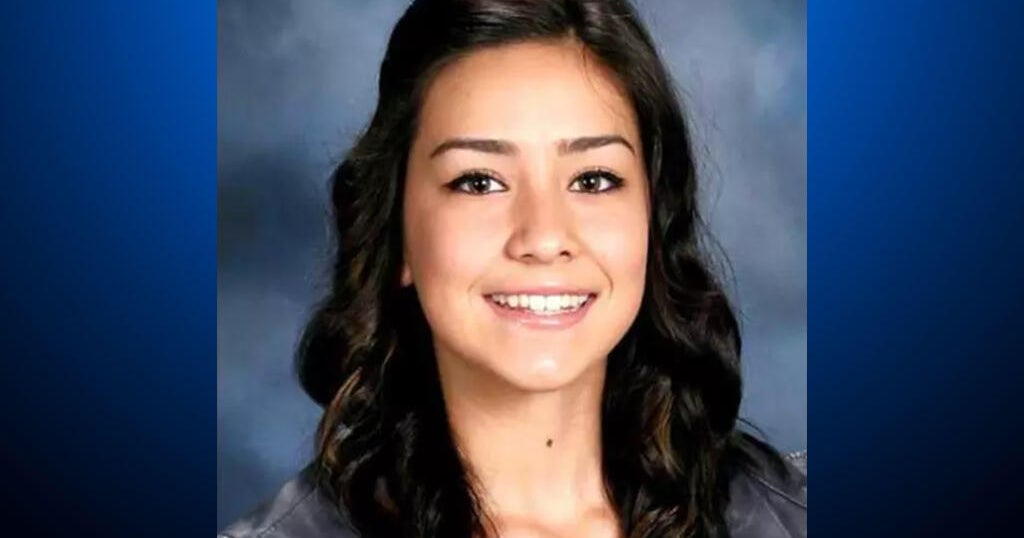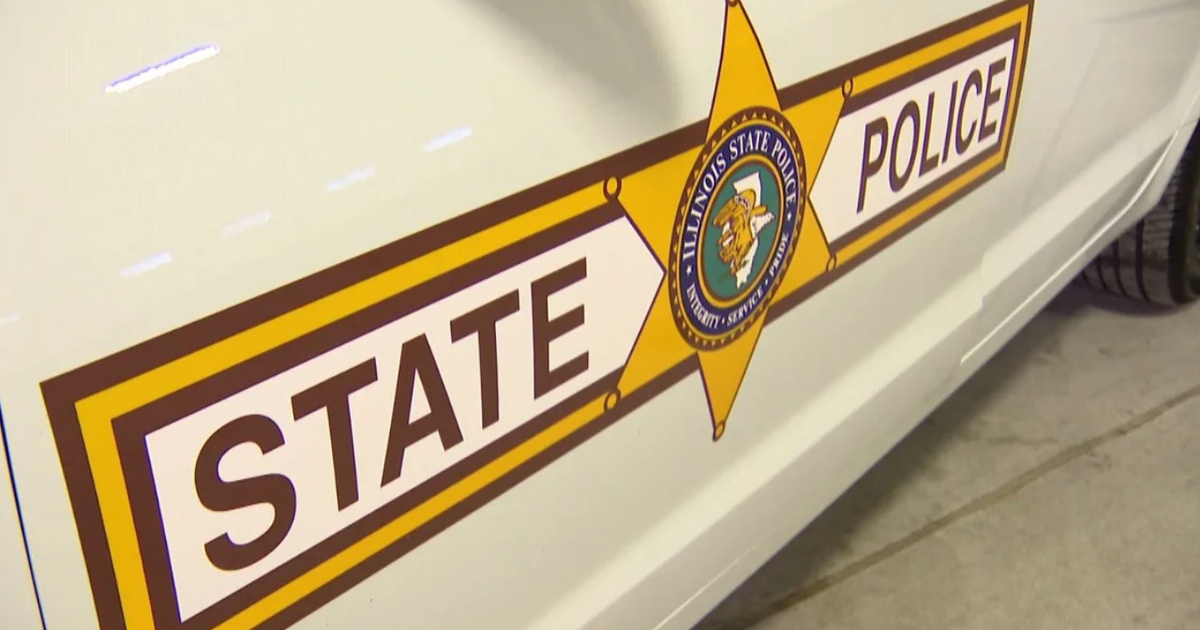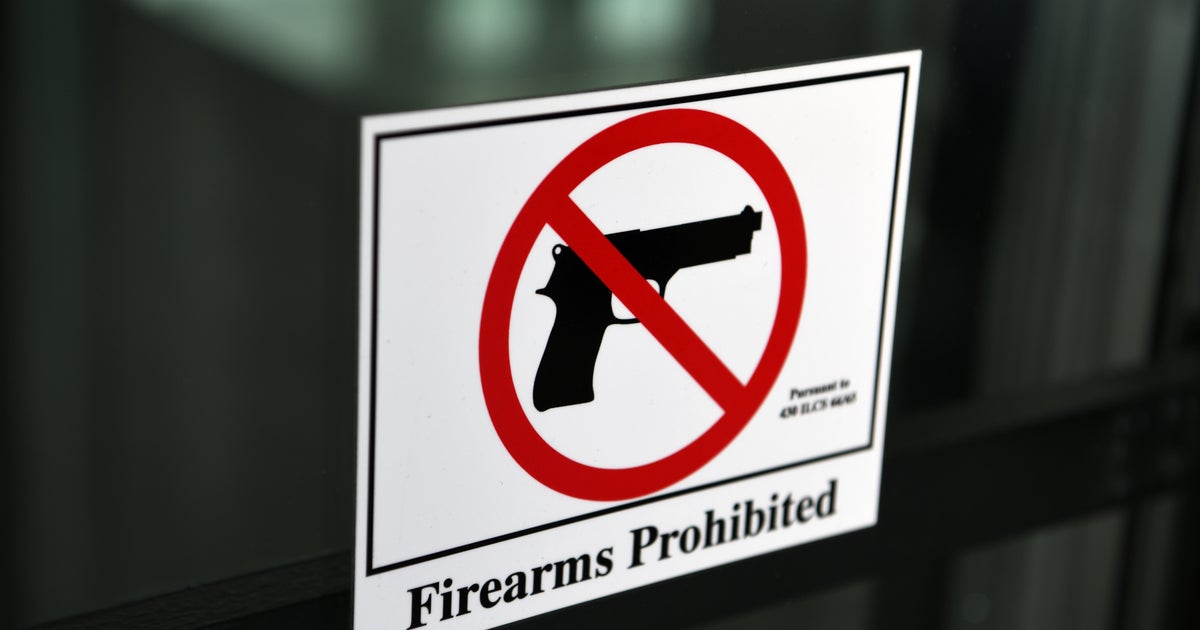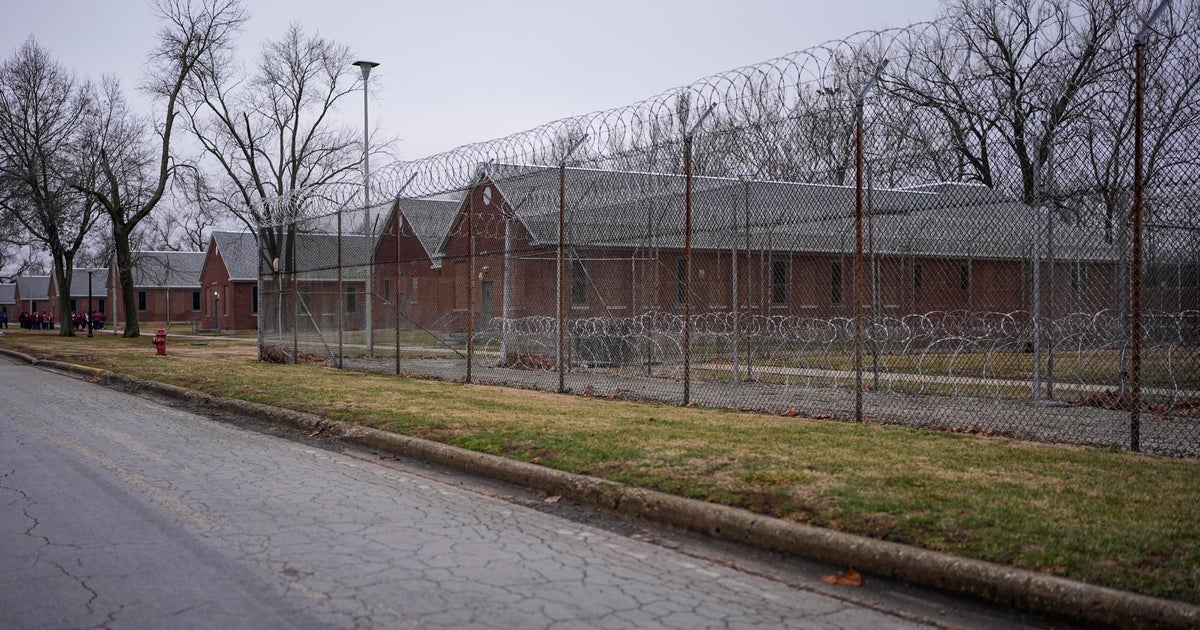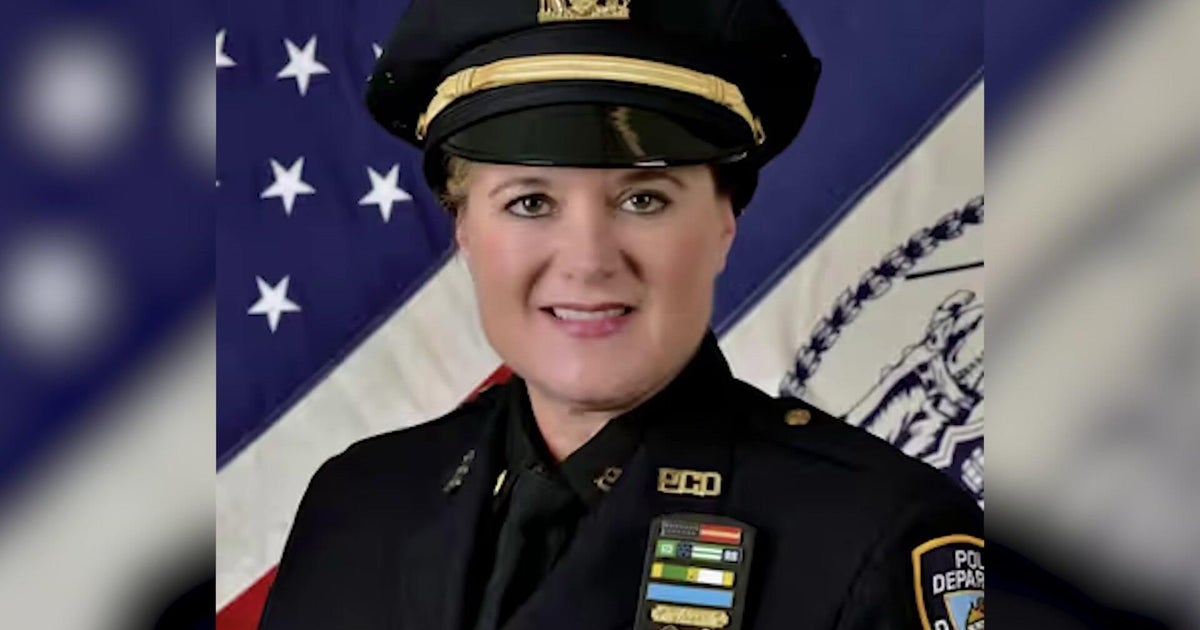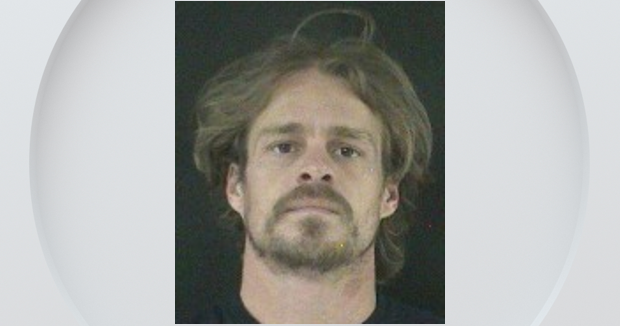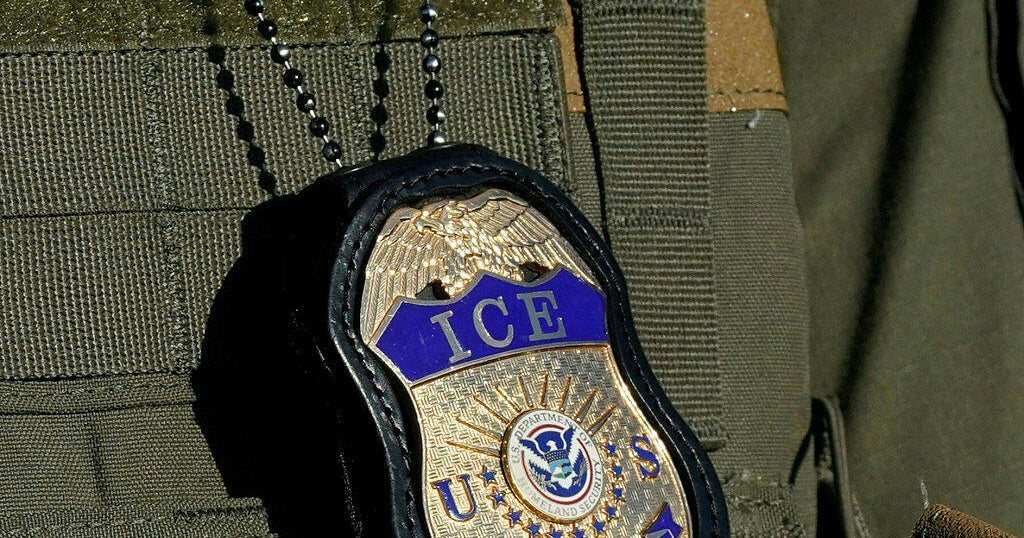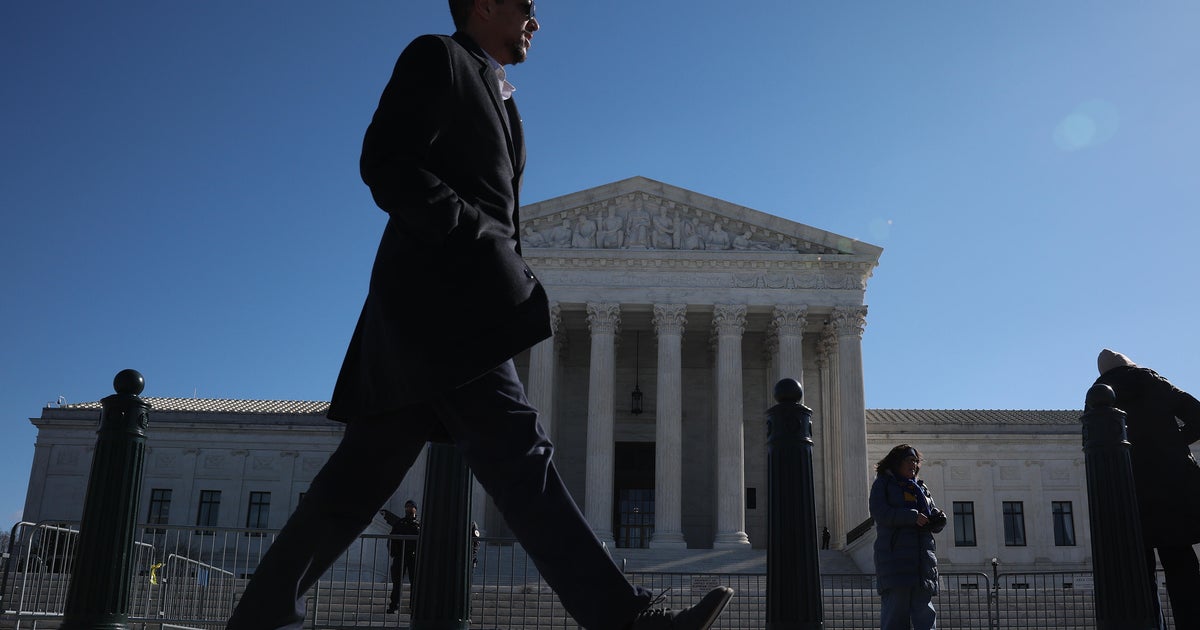Actor Jussie Smollett's hate crime hoax conviction overturned by Illinois Supreme Court
CHICAGO (CBS) -- The Illinois Supreme Court on Thursday overturned former "Empire" actor Jussie Smollett's conviction for allegedly staging a hate crime against himself in Chicago in 2019.
The state's highest court did not weigh in on the merits of the case against Smollett, ruling only that his constitutional rights were violated when he was prosecuted a second time, after the original charges against him were dropped in 2019.
"This was not a decision on the merits of the case – whether or not he's guilty or not guilty, or he did it or he didn't do it. This is strictly a constitutional decision saying his due process rights were violated by the way the system prosecuted him," CBS News Chicago legal analyst Irv Miller said. "There should not have been a trial before a jury. There should not have been a sentencing him to probation and time in the Cook County Jail."
Smollett was convicted of five counts of disorderly conduct and sentenced to 150 days in jail in 2021, but was released after only six days behind bars while he appealed his case. Smollett has maintained his innocence from the beginning.
How did the case against Smollett get to this point?
Smollett claimed he was the victim of a racist and homophobic attack near his Streeterville apartment in January 2019 after he walked several blocks for a Subway sandwich shop.
After police investigated his claims, detectives later focused on Smollett himself, and he was charged with staging a fake hate crime against himself with brothers Abel and Ola Osundairo, who later testified he paid them to stage the attack.
Defense attorneys had argued his trial violated his Fifth Amendment protections against double jeopardy, after Cook County State's Attorney Kim Foxx's office agreed to drop the original charges against him.
A special prosecutor, Dan Webb, was later assigned to reinvestigate the case, and brought a new indictment against him, but Smollett's attorneys have argued that Webb never should have been allowed to bring new charges.
On Thursday, the state's highest court sided with Smollett's attorneys, reversing his conviction, and ordering the case against him dismissed.
"Today we resolve a question about the State's responsibility to honor the agreements it makes with defendants. Specifically, we address whether a dismissal of a case by nolle prosequi allows the State to bring a second prosecution when the dismissal was entered as part of an agreement with the defendant and the defendant has performed his part of the bargain. We hold that a second prosecution under these circumstances is a due process violation, and we therefore reverse defendant's conviction," Justice Elizabeth Rochford wrote in the court's ruling.
Smollett's lead attorney, Nenye Uche, said Smollett was "relieved" with the decision, and looking forward to moving on with his life.
Uche said the Supreme Court's ruling proves that it was unfair to prosecute Smollett a second time, calling the trial "a travesty of justice."
"Prosecutions should be based on facts. Prosecutions should not be based on vindictiveness. This was a vindictive prosecution," Uche said. "The Supreme Court was clear – the rule of law and due process have to remain the fundamental process for which the American jurisprudence is run. It is not run by public opinion."
Uche claimed, if it had not been for Smollett's fame, he would never have been prosecuted in the first place.
"If this was the regular Joe down the street, this case would never even have gone to trial. No prosecutor would have taken this case to trial. It was ridiculous. There was no direct evidence linking him to anything," he said.
In a statement, special prosecutor Dan Webb said he was disappointed with the Illinois Supreme Court's ruling, and disagreed with the court's reasoning that dismissing the original charges precluded a new prosecution.
"Make no mistake—today's ruling has nothing to do with Mr. Smollett's innocence. The Illinois Supreme Court did not find any error with the overwhelming evidence presented at trial that Mr. Smollett orchestrated a fake hate crime and reported it to the Chicago Police Department as a real hate crime, or the jury's unanimous verdict that Mr. Smollett was guilty of five counts of felony disorderly conduct. In fact, Mr. Smollett did not even challenge the sufficiency of the evidence against him in his appeal to the Illinois Supreme Court," Webb said.
But Uche said Smollett still maintains he is innocent.
"He's innocent, and he's always maintained his innocence, and there have been … a mountain of reasonable doubt and evidence pointing to his innocence in this case that nobody has bothered to take a look at," Uche said.
Cook County prosecutors dropped the original charges against Smollett weeks after he was charged, in exchange for him forfeiting his $10,000 bond and performing 16 hours of community service, but a judge later ruled that Cook County State's Attorney Kim Foxx's office mishandled the case and appointed Web as a special prosecutor to review it.
Webb later brought a new grand jury indictment against Smollett, and he was convicted of five counts of disorderly conduct and sentenced to 150 days in jail. Smollett was also ordered to pay a $25,000 fine, and $120,106 in restitution to the city of Chicago. He served only six days of that sentence before he was released while he appealed his case.
Last December, an Illinois Appellate Court panel upheld Smollett's conviction, siding with prosecutors who argued there was no evidence prosecutors had agreed not to prosecute Smollett further when the initial charges against him were dropped.
But Appellate Justice Freddrenna Lyle dissented in that ruling, arguing it was "fundamentally unfair" to appoint a special prosecutor to charge Smollett a second time after he'd entered an agreement he believed would end the case.
In reversing Smollett's conviction, the Illinois Supreme Court agreed with defense attorneys that the special prosecutor's decision to file new charges violated Smollett's rights after the original case was dropped and Smollett agreed to forfeit his $10,000 bond.
"It defies credulity to believe that defendant would agree to forfeit $10,000 with the understanding that [prosecutors] could simply reindict him the following day," the court's ruling stated.
The Illinois Supreme Court remanded Smollett's case back to the trial court to formally enter a dismissal of the charges.
"We are aware that this case has generated significant public interest and that many people were dissatisfied with the resolution of the original case and believed it to be unjust," the opinion stated. "Nevertheless, what would be more unjust than the resolution of any one criminal case would be a holding from this court that the State was not bound to honor agreements upon which people have detrimentally relied."
Legal analyst Miller, a former prosecutor, said the court's ruling is not surprising.
"I have to totally agree with what the Illinois Supreme Court did today, saying that when a prosecutor makes a deal, makes a promise in exchange for the defendant doing something like Mr. Smollett did – giving up his bond and doing community service – a bargain is a bargain, and if the prosecutor doesn't keep that bargain, it violates a defendant's due process rights," Miller said. "The state's attorney's special prosecutor went back on that agreement. A prosecutor cannot go back on an agreement, period, end of case," Miller said.
Foxx also was not surprised by the state Supreme Court's decision to reverse Smollett's conviction.
"I find it unfortunate that five years and millions of dollars later, we're back to where we were back in March of 2019," said State's Attorney Foxx.
Foxx said her office's decision to drop the original charges against Smollett was not something out of the ordinary.
"Mr. Smollett's guilt, in the minds of the Cook County State's Attorney's office, was not an issue we believed that we could meet our burden," Foxx said. "We offered him a disposition that we would offer anybody with the same offense."
She also took Webb to task for leading a new prosecution against Smollett, saying the reindictment and new prosecution in the case went against "what we learn in the first year of law school."
"He went along for the show," Foxx said, "and so while I appreciate that he is unwilling to accept what was a result that I predicted years ago, Mr. Webb should be ashamed of himself."
What happens now that the criminal case is over?
While the criminal case against Smollett is now over, a civil case remains in play between Smollett and the City of Chicago.
Miller said the court's ruling is unlikely to have any effect on a lawsuit that the city of Chicago filed against Smollett in 2019, seeking to force Smollett to reimburse the city more than $130,000 for the cost of the investigation into his hate crime claims, after police determined it was a hoax.
Smollett has countersued the city, accusing police of malicious prosecution.
"Frankly, this decision today by the Illinois Supreme Court really doesn't affect that federal case whatsoever. It's still going to go on to determine if, in fact, he made a false police report, and the city of Chicago, because of that, spent thousands and thousands of dollars in police overtime and salary in investigating the case.
In January 2019, the Smollett said he was beaten by two masked men who poured bleach on him, and hung a noose around his neck, while shouting homophobic and racist slurs, and told him "this is MAGA country."
Chicago police have said, however, that Smollett paid the Osundairo brothers to stage the attack because he was upset with his salary on the Fox show "Empire."
Smollett himself has also consistently maintained his innocence, notably during an outburst in court after he was sentenced.
When Cook County Criminal Court Justice James Linn handed down Smollett's sentence on March 10, 2022, he ordered Smollett to be taken into custody on the spot. As he was escorted from the courtroom, Smollett raised his fist and yelled: "I am not suicidal! I am not suicidal, and I'm innocent! I could have said that I was guilty a long time ago!"
A short time earlier, when given an opportunity to address the court that day, Smollett said: "If I did this, then it means that I stuck my fist in the fears of Black Americans in this country for over 400 years, and the fears of the LGBT community. Your honor, I respect you, and I respect the jury, but I did not do this. And I am not suicidal, and if anything happens to me when I go in there, I did not do it to myself, and you must all know that."
Smollett again maintained his innocence in an interview with "Entertainment Tonight" last month.
"No matter how much people are yelling in my face, saying: 'You're a liar, you're a liar, you're a liar,' no, I'm not. No, I'm not," Smollett said in the ET interview.
Foxx, however, said the State's Attorney's office believed Smollett was guilty.
"When we offered Mr. Smollett the opportunity to pay his bond and do community service, we can only do that if we believe that Mr. Smollett was guilty of the crime," she said.

